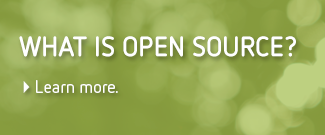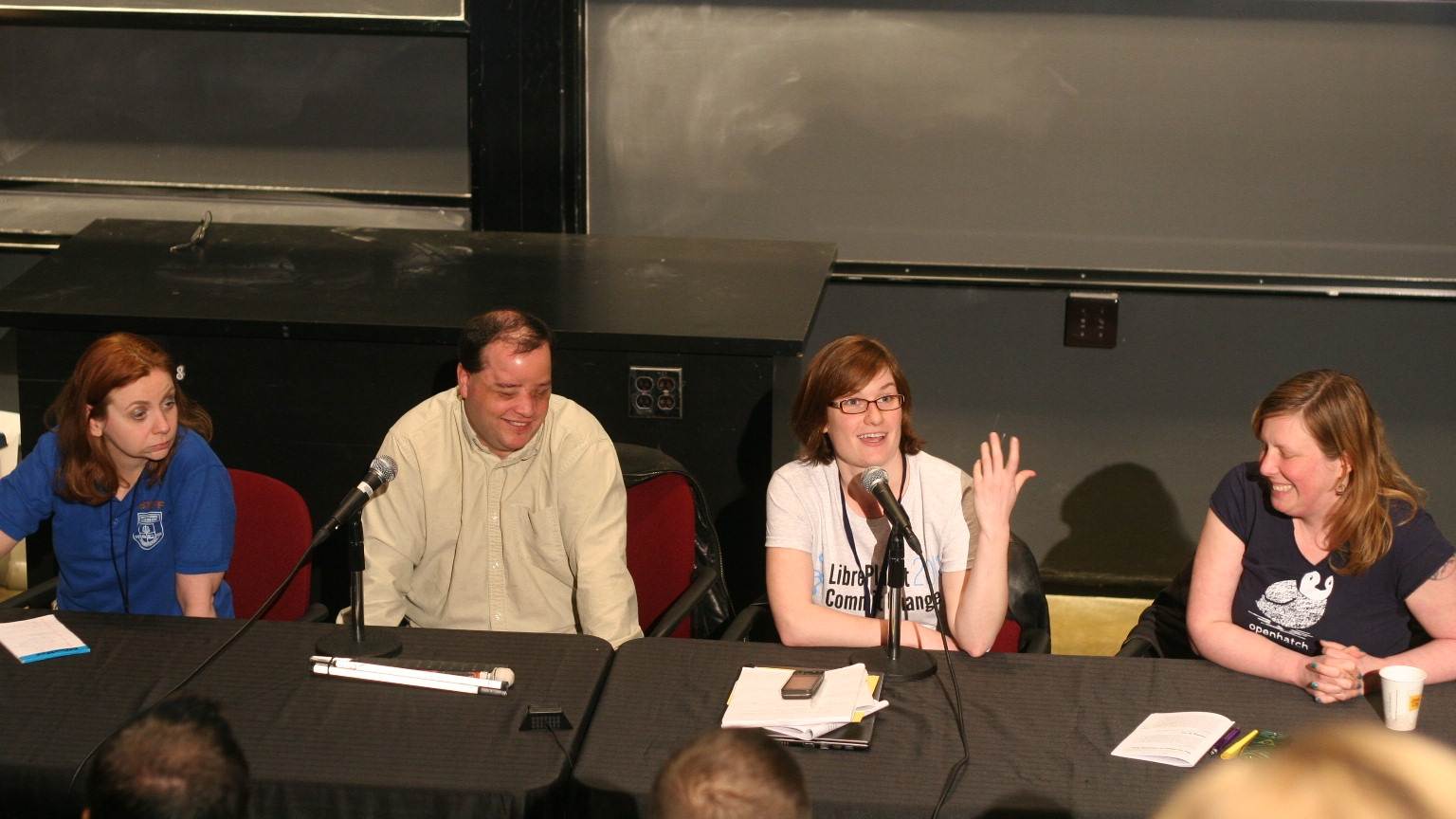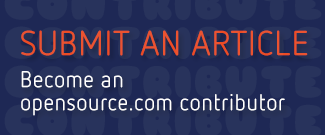Free Software Supporter
Issue 67, October 2013
Welcome to the Free Software Supporter, the Free Software Foundation's monthly news digest and action update -- being read by you and 71,727 other activists. That's 1,011 more than last month!
View this issue online here:
https://www.fsf.org/free-software-supporter/2013/october
Encourage your friends to subscribe and help us build an audience by adding our subscriber widget to your web site.
Miss an issue? You can catch up on back issues at
https://www.fsf.org/free-software-supporter.
#
El Free Software Supporter está disponible en español. Para ver la versión en español haz click aqui:
https://www.fsf.org/free-software-supporter/2013/octubre
Para cambiar las preferencias de usuario y recibir los próximos números del Supporter en castellano, haz click aquí: https://crm.fsf.org/civicrm/profile/create?gid=34&reset=1
Le Free Software Supporter est disponible en français. Pour voir la version française cliquez ici:
https://www.fsf.org/free-software-supporter/2013/octobre
Pour modifier vos préférences et recevoir les prochains publications du Supporter en français, cliquez ici: https://crm.fsf.org/civicrm/profile/create?gid=34&reset=1
TABLE OF CONTENTS
- Free Software Foundation opens nominations for the 16th annual Free Software Awards
- LibrePlanet 2014: Calling all presenters, volunteers, and exhibitors
- Global celebration for the GNU System's 30th anniversary
- FSF joins thousands in DC to tell NSA: "Stop Watching Us!"
- Interview with Andrew Ziem of BleachBit
- Introducing Ben, the licensing team's fall intern
- Introducing the Licensing and Compliance Lab's fall intern: Albert Sten-Clanton
- Recognizing an inspiring woman for Ada Lovelace Day: Audrey Tang
- LibreJS reaches version 5.4
- Introduction to the Command Line restocked!
- Cambridge, MA Software Freedom Day recap
- September 2013 - Biot, France - RMS at Sophia Antipolis
- How Much Surveillance Can Democracy Withstand?
- Help plan next year's LibrePlanet conference by joining the LP2014 planning committee!
- Why Free Software Is More Important Now Than Ever Before
- GNU Guix: The most important free software project you've never heard of
- GNU's novel proposal: putting privacy first
- GNU Octave – a great time saver
- GNU MediaGoblin summer of awesome wrapup
- Join the FSF and friends in updating the Free Software Directory
- LibrePlanet featured resource: LibrePlanet 2014 conference brainstorm
- GNU Toolchain Update
- Richard Stallman's speaking schedule and other FSF events
- Thank GNUs!
- Take action with the FSF!
Free Software Foundation opens nominations for the 16th annual Free Software Awards
From October 3rd
Is there someone who you think has advanced the progress of free software, someone you think of as a free software hero? How about a great project that uses free software principles, like copyleft or free culture, to benefit society? Now is your chance to nominate them for a Free Software Award. Nominations are due on November 6.
Press release:
LibrePlanet 2014: Calling all presenters, volunteers, and exhibitors
From October 18th
If you're passionate about free software, the Free Software Foundation wants you to be a part of LibrePlanet 2014. We're excited to announce three new ways to get involved in next year's conference: answerour Call for Sessions, apply to join our Exhibit Hall, or join our new Volunteer Committee.
Press release:
Global celebration for the GNU System's 30th anniversary
From October 1st
GNU supporters around the world gathered to celebrate the 30th anniversary of the GNU System's initial announcement on September 27th, 1983. In a livestream watched by hundreds of people, GNU founder Richard Stallman announced protecting privacy and security -- minimizing the harm done to users as they interact over a network -- as one of the GNU System's new priorities. In total, twenty-one groups held events in Argentina, Australia, Bangladesh, Brazil, Bulgaria, Canada, the Czech Republic, France, Germany, Japan, Moldova, Portugal, Romania, Saudi Arabia, Spain, Tunisia, Turkey, and the United States.
FSF joins thousands in DC to tell NSA: "Stop Watching Us!"
From October 28th
On Saturday, October 26, 2013, the FSF joined more than three thousand privacy advocates in Washington, DC, to call for an end to mass surveillance conducted by the NSA.
Interview with Andrew Ziem of BleachBit
From October 29th
This is the latest installment of our Licensing and Compliance Lab's series on free software developers who choose GNU licenses for their works. In this edition, we conducted an email-based interview with Andrew Ziem, the lead developer of BleachBit -- free software designed to help you free disk space and guard your privacy.
Introducing Ben, the licensing team's fall intern
From October 8th
Ben recently started working at the FSF as this fall's licensing intern. In this post, he writes about what brought him to free software and his interest in copyleft.
Introducing the Licensing and Compliance Lab's fall intern: Albert Sten-Clanton
From October 16th
Al recently started working at the FSF as this fall's licensing intern. In this post, he writes about his experiences with software freedom and accessibility software.
Recognizing an inspiring woman for Ada Lovelace Day: Audrey Tang
From October 15th
To celebrate Ada Lovelace Day, FSF campaigns organizer Kẏra writes about Audrey Tang, a Haskell hacker and personal inspiration.
Help plan next year's LibrePlanet conference by joining the LP2014 planning committee!
From October 16th
LibrePlanet is an annual conference of the Free Software Foundation, and we rely heavily on the support of volunteers to help plan the conference and get the word out, both online and through word of mouth.
LibreJS reaches version 5.4
From October 23rd
GNU LibreJS, a Web browser extension that protects users by identifying proprietary JavaScript and encourages people to write to Web masters about free JavaScript, has reached version 5.4.
Introduction to the Command Line restocked!
From October 30th
By popular demand, we have restocked
Introduction to the Command Line. This manual introduces new users to free software, by encouraging them to play with the command line. The book was written during the 2009 LibrePlanet conference in collaboration with FLOSS Manuals.
Cambridge, MA Software Freedom Day recap
From October 11th
Software Freedom Day organizer Deb Nicholson shares pictures from SFD 2013 in Cambridge, MA, and explains why it was the best SFD event yet.
September 2013 - Biot, France - RMS at Sophia Antipolis
From October 11th
RMS was at the Sophia Antipolis technological campus, in Biot, on September 19, to deliver his speech "a free digital society" to a diverse audience of students, local government officials, engineers, and researchers.
How Much Surveillance Can Democracy Withstand?
From October 14th
In his latest
Wired article, Richard Stallman discusses the relationship between surveillance and modern democracies, and calls for us to "reduce the surveillance capacity of the systems we use."
Why Free Software Is More Important Now Than Ever Before
From September 28th
Richard Stallman took the GNU system's 30th anniversary celebrations as an opportunity to warn us how, in spite of the great advances made by the free software movement, computer-user freedom is today under greater and more varied threats. In his article, he reminds us of what is at stake, and calls on individuals and institutions alike to do right by themselves and society, by choosing free software.
GNU Guix: The most important free software project you've never heard of
By Russell James at examiner.com, from October 1st
Popular GNU/Linux distributions like Ubuntu and Red Hat get all the attention, while Guix, the more important (for freedom lovers) new package manager and associated free software distribution of the GNU system, is virtually unknown -- even among enthusiasts.
GNU's novel proposal: putting privacy first
By Simon Phipps at InfoWorld, from October 11th
Simon Phipps and FSF executive director John Sullivan discuss software freedom and the future of GNU.
GNU Octave – a great time saver
By Adam Carlson from October 25th
Design engineer Adam Calson writes about his experiences with GNU Octave and how it makes his job easier. The FSF supports the work of GNU Octave through its Working Together for Free Software Fund. Please consider donating below.
Donation link:
Article:
GNU MediaGoblin summer of awesome wrapup
By Christopher Allan Webber, from October 6th
Chris Webber writes about the progress made by GNU MediaGoblin contributors from the Outreach Program for Women and Google Summer of Code programs.
Join the FSF and friends in updating the Free Software Directory
From October 30th
Tens of thousands of people visit directory.fsf.org each month to discover free software. Each entry in the Directory contains a wealth of useful information, from basic category and descriptions to version control, IRC channels, documentation, and licensing. The Free Software Directory has been a great resource to software users over the past decade, but it needs your help staying up-to-date with new and exciting free software projects.
To help, join our weekly IRC meetings on Fridays. Meetings take place in the #fsf channel on irc.gnu.org, and usually include a handful of regulars as well as newcomers. Everyone's welcome.
The next meeting is Friday, November 1 from 2pm to 5pm EDT (18:00 to 21:00 UTC). Details here:
After this meeting, you can check
https://www.fsf.org/events to see the rest of November's weekly meetings as they are scheduled.
LibrePlanet featured resource: LibrePlanet 2014 conference brainstorm
Every month on LibrePlanet, we highlight one resource that is interesting and useful -- often one that could use your help.
For this month, we are highlighting the LibrePlanet 2014 brainstorm page, which collects ideas for workshops, topics, or speakers for next year's conference. You are invited to adopt, spread and improve this important resource.
Do you have a suggestion for next month's featured resource? Let us know at
campaigns@fsf.org.
GNU Toolchain update
From October 21st
The GNU toolchain refers to the part of the GNU system which is used for building programs. These components of GNU are together often on other systems and for compiling programs for other platforms.
This month features improvements to support for ARM and MIPS architectures.
Richard Stallman's speaking schedule
For event details, as well as to sign-up to be notified for future events in your area, please visit
https://www.fsf.org/events.
So far, Richard Stallman has the following events in November:
- Nov 01, 2013 05:30 PM, Dublin, Ireland, "A free digital society"
- Nov 12, 2013 11:00 AM, San Francisco, CA, "Richard Stallman to speak in San Francisco"
- Nov 17, 2013 05:30 PM, Mountain View, CA, "Richard Stallman to speak in Bay Area"
- Nov 29, 2013, Lincoln, United Kingdom, "Richard Stallman to speak in Lincoln, United Kingdom"
- Nov 30, 2013, London, United Kingdom, "Software freedom, Internet freedom, and bitcoin"
Other FSF and free software events
Thank GNUs!
We appreciate everyone who donates to the Free Software Foundation, but we'd like to give special recognition to the folks who have donated $500 or more in the last month.
This month, a big Thank GNU to:
- Kailash Balnac
- Jesse Noller
- Laurent Watteau
- Philipp Weis
- Lukasz Milewski
- Edward Fahner
You can add your name to this list by donating at
https://donate.fsf.org.
Take action with the FSF
Contributions from thousands of individual members enable the FSF's work. You can contribute by joining at
https://www.fsf.org/join. If you're already a member, you can help refer new members (and earn some rewards) by adding a line with your member number to your email signature like:
I'm an FSF member -- Help us support software freedom!
https://www.fsf.org/jf?referrer=2442
The FSF is also always looking for volunteers (
https://www.fsf.org/volunteer). From rabble-rousing to hacking, from issue coordination to envelope stuffing -- there's something here for everybody to do. Also, head over to our campaign section (
https://www.fsf.org/campaigns) and take action on software patents, DRM, free software adoption, OpenDocument, RIAA and more.




















